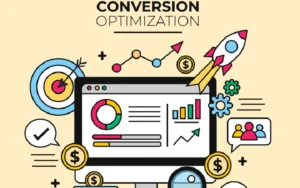Software Development For Startups Life Cycle: A Startup Perspective
The software development life cycle (SDLC) for startups is characterized by rapid iteration and adaptability. Unlike traditional SDLC models, which can be rigid and time-consuming, the startup perspective emphasizes flexibility and speed. This approach is crucial for startups, which must often pivot quickly based on market feedback and evolving business goals. The SDLC stages—planning, analysis, design, development, testing, deployment, and maintenance—are compressed and often overlap to expedite the development process. Startups typically adopt agile or lean methodologies to facilitate continuous integration and delivery, allowing them to release functional software increments rapidly.
Remote Teams And Software Development For Startups: Strategies For Startups
The rise of remote work has significantly impacted software development for startups, offering both opportunities and challenges. Remote teams can access a global talent pool, allowing startups to build diverse and skilled teams without geographical constraints. However, managing remote teams requires effective communication, collaboration tools, and a strong organizational culture. Startups must leverage digital platforms for project management, version control, and real-time communication to ensure seamless collaboration. Strategies such as regular virtual meetings, clear documentation.

Software Development For Startups: Best Practices And Tools
Adopting best practices and utilizing the right tools are crucial for the success of software development in startups. Best practices include implementing agile methodologies, which facilitate iterative development and continuous software development for startups. Regular code reviews and automated testing ensure code quality and reduce the risk of bugs. Additionally, leveraging version control systems like Git allows for efficient collaboration and tracking of changes. Integrating continuous integration and continuous deployment (CI/CD) pipelines automates the testing and deployment process, speeding up delivery and minimizing errors.
The Importance Of User Feedback In Software Development For Startups
User feedback is a cornerstone of successful software development for startups. It provides valuable insights into how users interact with the product, highlighting areas for improvement and innovation. Startups often operate in highly competitive and dynamic markets, making it essential to align their products with user needs and preferences. By actively seeking and incorporating user feedback, startups can refine their products to better meet customer expectations.
Software Development For Startups Solutions For Startup Challenges
Startups face unique challenges in software development, including limited resources, high uncertainty, and the need for rapid innovation. Effective solutions to these challenges involve strategic planning and leveraging the right technologies. One approach is to adopt a lean development model, which focuses software development for startups building a minimum viable product (MVP) to validate ideas quickly and minimize waste. This allows startups to test their concepts with minimal investment and gather user feedback early in the process.
Navigating Software Development For Startups Landscape: A Guide For Startup Founders
For startup founders, navigating the software development landscape requires a strategic approach and a deep understanding of the market and technology trends. Founders must start by clearly defining their vision and product goals, aligning their development efforts with the overall business strategy. Building a competent and motivated development team is crucial, whether in-house or remote. Founders should focus on creating a collaborative culture that encourages innovation and agility.
Machine Learning In Software Development For Startups
Machine learning (ML) has become a game-changer in software development for startups, offering the potential to create intelligent and adaptive applications. Startups can leverage ML to enhance various aspects of their products, from improving user experience to optimizing operations. For instance, ML algorithms can be used to analyze user behavior and provide personalized recommendations, increasing user engagement and satisfaction. In addition, predictive analytics powered by ML can help startups make data-driven decisions, from marketing strategies to product development.
Scaling Your Software Development For Startups: Tactics For Growth
Scaling software development is a critical phase for startups aiming for growth and long-term success. Effective scaling involves expanding the development team, optimizing processes, and enhancing infrastructure to support increased demand. Startups should focus on building a scalable architecture that can handle software development for startups user bases and feature sets. Adopting microservices architecture, for example, allows for independent scaling of different components, improving flexibility and resilience. Investing in automated testing and CI/CD pipelines ensures that scaling does not compromise quality or speed of delivery.
Conclusion
Software development for startups encompasses a wide range of practices, tools, and strategies essential for turning innovative ideas into successful products. The startup environment demands agility, rapid iteration, and a deep understanding of user needs and market dynamics. By adopting flexible SDLC models, leveraging remote work capabilities, utilizing best practices and modern tools, and prioritizing user feedback, startups can navigate the complexities of software development.

Fran Peters is a dedicated writer specializing in health and medical content. With a background in healthcare and a passion for helping others lead healthier lives, Fran brings a wealth of knowledge and expertise to her writing.















Post Comment